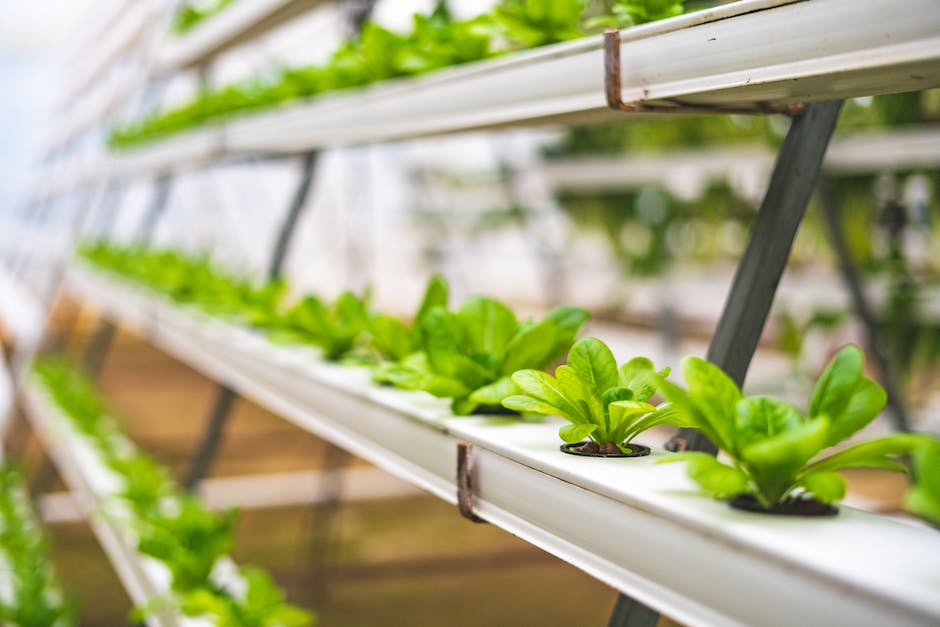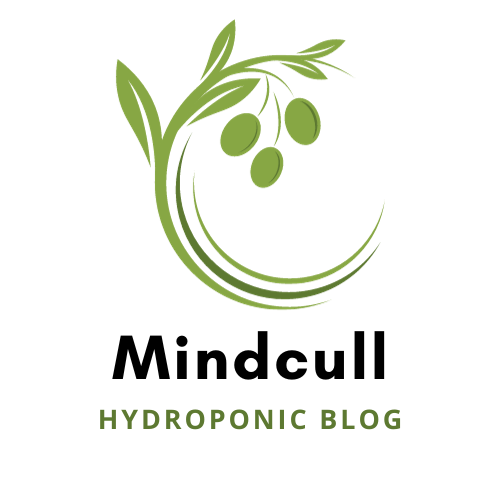Why Is Hydroponics Good
Hydroponics, also known as soilless gardening, is gaining popularity as a modern and efficient method of cultivation. Instead of relying on traditional soil-based farming techniques, hydroponics utilizes a nutrient-rich water solution to grow plants. This method provides numerous advantages that make it a good choice for both small-scale and large-scale agricultural operations.
One of the primary benefits of hydroponics is its ability to maximize crop yields consistently. By providing plants with an optimal balance of essential nutrients in a controlled environment, hydroponics allows plants to grow faster and healthier than traditional farming methods. Plants grown hydroponically also tend to have fewer issues with pests, diseases, and weeds, resulting in higher quality produce.
Another advantage of hydroponics is its efficient use of resources, particularly water. Compared to conventional agriculture, hydroponics uses significantly less water. The water used in hydroponics is recycled and reused, reducing water waste and conserving this precious resource. This makes hydroponics an environmentally friendly option, particularly in regions suffering from water scarcity.
Furthermore, hydroponics enables year-round cultivation regardless of seasonal limitations. With the ability to control temperature, light, and nutrient intake, growers can provide optimal conditions for plant growth throughout the year. This not only ensures a steady supply of fresh produce but also reduces the need to import fruits and vegetables from distant locations, thereby cutting down on transportation costs and greenhouse gas emissions.
Hydroponics also offers flexibility in terms of space utilization. Since plants in a hydroponic system don’t require extensive root systems to access nutrients, they can be grown in smaller spaces and even vertically. This makes hydroponics an ideal solution for urban environments where land availability is limited. Additionally, because hydroponics eliminates the need for soil, it eliminates the risk of soil erosion and nutrient depletion, contributing to sustainable land use practices.
In conclusion, hydroponics offers numerous advantages that make it a good choice for cultivation. From increased crop yields and efficient resource utilization to year-round production and space efficiency, hydroponics proves to be a sustainable and forward-thinking method of farming. As more businesses and individuals recognize these benefits, hydroponics is likely to play a significant role in the future of agriculture, both to meet growing demands and to address environmental concerns.
Briefly explain the concept of hydroponics

Hydroponics is a revolutionary technique in agriculture that is rapidly gaining popularity in the modern world. Unlike traditional methods of growing plants in soil, hydroponics is a soilless cultivation method that relies on mineral nutrient solutions dissolved in water. This allows plants to grow in a controlled and optimal environment, providing numerous advantages over conventional farming practices.
In hydroponics, plants are grown using various systems such as nutrient film technique, deep water culture, or aeroponics. These systems provide plants with the necessary nutrients, water, and oxygen, allowing them to thrive without the limitations and challenges associated with soil-based cultivation.
One of the key benefits of hydroponics is its increased efficiency in resource utilization. By delivering nutrients directly to the plant roots, hydroponic systems optimize nutrient uptake, resulting in faster growth rates and higher yields compared to traditional agriculture. Additionally, the controlled environment minimizes the need for pesticides, herbicides, and fungicides, leading to a more environmentally friendly and sustainable approach to farming.
Furthermore, hydroponics offers greater flexibility in terms of location and space utilization. As plants are grown in nutrient-rich water, cultivation can be performed in urban areas, rooftops, or even indoors. This not only reduces transportation costs but also allows for year-round production, unaffected by seasonal variations or adverse weather conditions.
Hydroponics also mitigates the risk of soil-borne diseases and pests that often plague traditional farming practices. By eliminating soil from the equation, hydroponics reduces the chances of introducing harmful pathogens or pests that can hinder plant growth and productivity.
Lastly, hydroponics has immense potential in addressing global food security concerns. As the world’s population continues to grow, the demand for food production surges. With hydroponics, we can utilize vertical farming techniques, maximizing land use and producing more food with less space. This innovation could prove crucial in ensuring a sustainable and secure food supply for future generations.
In conclusion, hydroponics offers a promising and sustainable solution for the challenges faced by traditional agriculture. With its resource efficiency, flexibility, reduced environmental impact, and increased yield potential, hydroponics is revolutionizing the way we grow plants. By embracing this innovative technique, we can pave the way towards a more sustainable and food-secure future.
Highlight its growing popularity and relevance in today’s world

Hydroponics, a method of growing plants without soil, is gaining significant popularity and relevance in today’s world. With advancements in technology and a growing emphasis on sustainable practices, hydroponics offers several advantages that are attracting attention from both individuals and businesses alike.
One key reason for the increasing popularity of hydroponics is its ability to maximize limited space. Traditional farming methods require large plots of land, which may not be feasible in urban or densely populated areas. Hydroponics, on the other hand, allows plants to be grown in vertical towers, stacking layers of plants on top of each other. This not only conserves space but also increases the overall yield per square meter.
Additionally, hydroponics eliminates the need for soil, which can be contaminated with pests, diseases, or heavy metals. By growing plants in a controlled environment with specially formulated nutrient solutions, hydroponics minimizes the risk of crop damage and enhances plant health. This aspect of hydroponics is particularly advantageous in urban areas, where pollution and soil quality may be a concern.
Water conservation is another crucial factor contributing to the relevance of hydroponics. Traditional agriculture methods often require substantial amounts of water to maintain crops. In contrast, hydroponics utilizes a recirculating system that significantly reduces water consumption. By continuously recycling the nutrient solution, hydroponics can save up to 90% of the water used in traditional farming methods. As water scarcity becomes an increasing global concern, hydroponics offers a sustainable solution for food production.
Furthermore, the controlled environment of hydroponics allows for year-round cultivation, regardless of external weather conditions. This means that fresh produce can be grown and harvested throughout the year, providing a more consistent and reliable supply. This reliability is especially valuable in regions with unpredictable weather patterns or limited growing seasons.
In conclusion, the growing popularity and relevance of hydroponics stem from its ability to maximize space, eliminate soil-related risks, conserve water, and provide a year-round growing and harvesting cycle. As sustainable practices and efficient resource use become essential considerations for individuals and businesses, hydroponics emerges as a promising solution for future food production.
Water conservation (2)
Hydroponics is not just a revolutionary way of growing crops, but it also holds tremendous benefits when it comes to water conservation. Traditional soil-based agriculture requires a significant amount of water to nourish the plants, yet a substantial portion of that water is wasted due to evaporation, runoff, or deep seepage into the ground. This is where hydroponics shines.
In hydroponic systems, water usage is optimized and drastically reduced. The plants are grown in a controlled environment, where water is circulated and recycled continuously, minimizing any loss due to evaporation or runoff. This closed-loop system ensures that every drop of water used is efficiently utilized by the plants, conserving this precious resource.
Moreover, hydroponics allows for precise control of water delivery, enabling farmers to provide plants with the exact amount of water they need. Unlike traditional agriculture, where over-watering is a common concern, hydroponics eliminates this problem altogether. By delivering water directly to the plant’s root system, there is no excess water wasted on areas that do not require it, promoting efficient water usage.
Additionally, hydroponic systems have the advantage of reducing the overall water pressure required for irrigation. As the water is delivered directly to the roots, the need for high-pressure irrigation methods is eliminated. This results in further water conservation and reduced energy consumption, making hydroponics an eco-friendly choice for sustainable agriculture.
By adopting hydroponic techniques, farmers can significantly decrease water usage compared to conventional agriculture methods. This not only benefits the environment by conserving water resources but also offers economic advantages. With water becoming a scarce and costly resource in many regions, hydroponics provides a solution that allows farmers to grow crops with minimal water consumption, reducing both costs and environmental impact.
In conclusion, hydroponics is an excellent choice for sustainable agriculture due to its water conservation benefits. The controlled environment, precise water delivery, and efficient water usage make hydroponics a practical solution to combat water scarcity and promote responsible farming practices. By embracing hydroponics, we can contribute to water conservation efforts while ensuring a steady supply of fresh produce for a sustainable future.
Discuss how hydroponics uses up to 90% less water compared to traditional soil farming methods

Hydroponics, the innovative method of cultivating plants without soil, has gained popularity in recent years due to its numerous benefits. One of the key advantages of hydroponics over traditional soil farming methods is its remarkable water efficiency. In fact, hydroponics has proven to use up to 90% less water compared to conventional farming techniques.
Traditionally, soil farming requires significant amounts of water to irrigate the crops in order to provide them with the necessary nutrients and sustain their growth. However, in hydroponics, water is utilized much more efficiently. The use of a nutrient-rich solution, instead of soil, allows for precise control over the amount of water each plant receives. This targeted approach ensures that water is utilized optimally, minimizing wastage.
Hydroponic systems are designed to recirculate and reuse water, contributing to its exceptional water-saving capacity. Unlike traditional farming, where excess water runs off into the ground or evaporates, hydroponics provides an opportunity to capture and recycle water, reducing the strain on our limited freshwater resources.
Not only does hydroponics conserve water, but it also mitigates the risk of water pollution. In soil farming, excessive irrigation can lead to the leaching of harmful chemicals and fertilizers into nearby water sources. With hydroponics, the controlled environment minimizes the risk of contamination, ensuring cleaner and safer food production.
Furthermore, the water savings achieved through hydroponics have broader environmental implications. Agriculture is a major consumer of freshwater around the world, and the excessive use of water by traditional farming practices contributes to water scarcity issues. By adopting hydroponics on a larger scale, we can significantly reduce water consumption in agriculture, alleviating stress on water supplies and promoting sustainability.
In conclusion, hydroponics’ ability to utilize up to 90% less water than traditional soil farming methods makes it a highly efficient and environmentally responsible choice for modern agriculture. By implementing hydroponics systems, we have the opportunity to conserve water resources, reduce water pollution, and contribute to a more sustainable future.
Explain the benefits of reducing water usage in agriculture

Hydroponics, a method of growing plants without soil, offers numerous benefits when it comes to reducing water usage in agriculture. With traditional farming, a significant amount of water is required, and much of it goes to waste due to improper irrigation techniques or evaporation. In contrast, hydroponics allows for a more controlled and efficient use of water resources.
One of the main advantages of hydroponics is its ability to recycle and recirculate water. Unlike in traditional soil-based farming, where water seeps into the ground and is lost, hydroponic systems collect and reuse water, resulting in significantly less water waste. By utilizing recirculation systems, hydroponics can reduce water usage by up to 90% compared to conventional farming methods.
Additionally, the precise control over water delivery in hydroponics eliminates the risk of overwatering plants. With traditional farming, a considerable amount of water is often lost due to excessive irrigation, which can lead to soil erosion and nutrient runoff. In hydroponics, water is delivered directly to the plant roots in a carefully measured and monitored manner, ensuring that each plant receives the exact amount it needs. This targeted approach not only conserves water but also prevents nutrient loss and promotes optimal plant growth.
Furthermore, hydroponics allows for the cultivation of crops in regions with limited access to water resources. By employing closed-loop systems and incorporating technologies such as drip irrigation or aeroponics, hydroponic farms can be established in arid or water-scarce areas without depleting local water supplies. This aspect of hydroponics expands agricultural possibilities and promotes food production in regions where water scarcity is a significant challenge.
Lastly, hydroponics enables farmers to minimize the use of pesticides and fertilizers, which can pose environmental risks when they leach into water sources. In a controlled hydroponic environment, nutrient solutions can be precisely tailored to meet plant requirements, reducing the need for excessive chemical inputs. Additionally, the absence of soil in hydroponics reduces the likelihood of soil-borne diseases and pests, further reducing the reliance on chemical pesticides.
In conclusion, hydroponics offers significant benefits in reducing water usage in agriculture. Through its water-recycling capabilities, precise water delivery, ability to cultivate in water-scarce areas, and reduction in chemical inputs, hydroponic systems pave the way for a more sustainable and resource-efficient future in farming. As we strive to tackle water scarcity and enhance environmental stewardship, hydroponics emerges as a promising solution to conserve one of our most precious resources: water.
Enhanced plant growth (4)

Hydroponics is a revolutionary method of growing plants that offers several benefits over traditional soil-based cultivation. One of the main advantages of hydroponics is enhanced plant growth.
In hydroponic systems, plants are provided with the necessary nutrients directly in water, which allows them to uptake the essential elements more effectively than in soil. This direct access to nutrients means that plants can grow quicker and produce higher yields in a shorter time frame compared to traditional soil-based methods.
Moreover, hydroponic systems can be designed to perfectly control environmental factors like temperature, humidity, and pH levels. These optimal growing conditions create an ideal environment for plants to thrive. The precise management of these factors ensures that plants are provided with both the necessary nutrients and ideal growing conditions throughout their growth cycle, leading to accelerated and enhanced plant growth.
Additionally, hydroponic systems eliminate common issues associated with traditional soil-based cultivation, such as nutrient deficiencies or imbalances. By delivering a balanced and targeted nutrient solution directly to plant roots, hydroponics eliminates the potential for nutrient loss to leaching or uptake competition. As a result, plants receive the optimal amount of nutrients they need, which promotes vigorous growth and high-quality yields.
Furthermore, in hydroponics, plants do not have to allocate energy towards developing an extensive root system to search for nutrients in soil. This energy-saving advantage allows plants to dedicate more resources towards above-ground growth, leading to faster and healthier development. With less energy spent on root development, hydroponic plants can redirect their effort towards foliage growth, flower production, or fruit development, resulting in enhanced plant growth and overall productivity.
In conclusion, hydroponics offers enhanced plant growth by providing plants with direct access to nutrients, optimizing environmental conditions, and eliminating common soil-related issues. With accelerated growth and increased yields, hydroponics proves to be a highly efficient and productive method for cultivating various crops in a professional and sustainable manner.
Explore how hydroponics provides controlled environments with optimized nutrients, lighting, and climate

Hydroponics is gaining significant attention in the world of agriculture due to its ability to provide controlled environments with optimized nutrients, lighting, and climate. Unlike traditional soil-based farming, hydroponics eliminates the need for soil and allows plants to grow directly in water-based nutrient solutions.
One of the key advantages of hydroponics is the precise control it offers over nutrient levels. Plants receive the exact amount of nutrients they need, ensuring optimal growth and development. This not only maximizes productivity but also minimizes the risk of nutrient deficiencies or imbalances that can harm the plants’ health.
Moreover, hydroponics enables growers to manipulate lighting conditions to suit the specific needs of plants. With the ability to adjust artificial lighting, hydroponic systems can provide consistent and ideal light levels throughout the day, regardless of weather or geographic limitations. This control over lighting allows for year-round cultivation and the possibility of growing plants in areas where natural light conditions may be insufficient.
Additionally, hydroponics allows for the precise regulation of climate factors such as temperature and humidity. These controlled environments minimize the impact of external factors on plant growth, resulting in more stable and predictable yields. By optimizing these climate variables, hydroponic systems provide plants with the ideal conditions for growth, thereby accelerating their development and improving overall productivity.
The controlled nature of hydroponics also minimizes the risks associated with pests and diseases. Without soil, many common pests and pathogens that affect traditional farming methods are mitigated, reducing the need for chemical interventions. As a result, hydroponic farms can maintain higher standards of cleanliness and produce healthier, pesticide-free crops.
In conclusion, hydroponics offers numerous advantages by providing controlled environments with optimized nutrients, lighting, and climate. This advanced farming technique allows for greater precision, productivity, and sustainability in agriculture. As we strive for efficient and sustainable food production methods, hydroponics is proving to be an excellent option that aligns with the professional brand and ethos of some business.
Highlight how these factors promote faster growth and higher yields

Hydroponics, a method of cultivating plants in a nutrient-rich water-based solution, offers several advantages over traditional soil-based farming. This innovative approach to agriculture has gained popularity in recent years due to its ability to promote faster growth and higher yields. Let’s delve into the factors that contribute to these impressive outcomes.
1. Optimal Nutrient Delivery: By directly supplying plants with a precise balance of nutrients in their water supply, hydroponics eliminates the risk of nutrient deficiencies or imbalances often encountered in traditional soil-based farming. This method ensures that plants have access to the exact amount of nutrients needed for their growth, resulting in healthier and more robust plants.
2. Efficient Water Usage: Hydroponic systems are designed to be highly water-efficient, using up to 90% less water compared to conventional soil farming. The controlled environment allows for the recycling and reuse of water, reducing wastage significantly. By conserving water resources, hydroponics not only minimizes environmental impact but also allows for consistent and uninterrupted crop production.
3. Enhanced Oxygenation: Traditional soil-based farming relies on the presence of adequate oxygen pockets within the soil for healthy root development. In hydroponics, oxygen is readily available to plants through frequent aeration of the nutrient-rich solution. This oxygenation promotes optimal root growth, enabling better nutrient absorption and ultimately leading to faster plant development.
4. Elimination of Soil-borne Diseases: Diseases and pests are a constant challenge faced by conventional farmers, often resulting in reduced yields and the need for chemical interventions. By eliminating the use of soil, hydroponics minimizes the risk of soil-borne diseases and pests. This allows for a healthier growing environment, reducing the need for harmful pesticides and providing a more natural and sustainable approach to agriculture.
5. Controlled Environment: Hydroponic systems allow growers to have precise control over environmental variables such as temperature, humidity, light, and pH levels. By providing optimal growing conditions throughout the year, regardless of external climate or seasonal variations, hydroponics offers consistent growth and better yields. This control also enables year-round cultivation, providing a reliable source of fresh produce even in regions with unfavorable weather conditions.
The combination of these factors in hydroponics paves the way for faster growth and higher yields. By optimizing nutrient delivery, conserving water, enhancing oxygenation, eliminating soil-borne diseases, and controlling the environment, hydroponics provides a sustainable and efficient solution to modern farming challenges. As more farmers and growers embrace this innovative technique, the potential for expanding food production and meeting the demands of a growing population becomes more promising.

